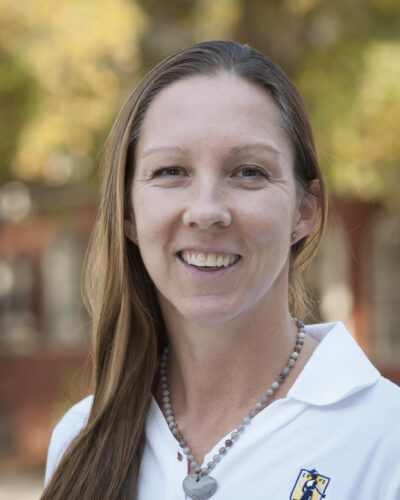Louisa Raisbeck

Bio & Education
Dr. Louisa D. Raisbeck is an Assistant Professor in the Department of Kinesiology at the University of North Carolina at Greensboro. Dr. Raisbeck received her BSc in Sport Science and Coaching from Nottingham Trent University in England (2000), M.S. in Motor Learning and Control from Indiana University (2004) and Ph.D. in Human Performance, specializing in Motor Learning from Indiana University (2009).
Dr. Raisbeck’s research focuses on the role attention plays in motor control and learning. This has been a growing area of study in the field of kinesiology for the past 20 years and it has been discovered that asking someone to focus on something outside of their body (termed an external focus) while performing a movement task facilitates better performance that asking them to focus on their body (termed an internal focus). While two decades of experimental studies have supported this finding, it is antithetical to how many coaches, athletic trainers, and physical therapists teach their athletes/patients to move.
Dr. Raisbeck pursues her scholarly work through two complimentary lines of research. First, she is the Primary Investigator (PI) on an NIH funded grant that is implementing a 12-week balance training program at an older adult living facility. In this clinical trial, participants are randomly assigned to exercise groups who receive either external or internal focus of attention instructions and assessments of their perceived and motor abilities, including functional gait and balance tests, are given before, during, and after the training. More information on this project can be found from the following links:
Dr. Raisbeck’s second line of research focuses on understanding the mechanisms of motor learning by using neural imaging. It is fairly well understood that a change in motor behavior can occur through proper teaching/coaching. However, how that change occurs at the neural level is not well understood. Specifically, understanding how changes in the brain help facility changes in motor behavior is the goal of this line of research. Unlocking the puzzle of motor learning by monitoring how the brain changes could lead to more focused and efficient training programs, as well as identification of neural mechanisms that are responsible for degradation of motor behavior due to injury, aging, or disease.
Courses Taught
- KIN 386 – Motor Development/ Learning
- KIN 475 – Independent Study
- KIN 648 – Learning/Performance of Physical Skills
- KIN 695 – Independent Study
- KIN 699 – Thesis
- KIN 709 – Mentored Teaching in KIN
- KIN 713 – Internship in Kinesiology
- KIN 714 – Field Practicum in KIN
- KIN 795 – Independent Doctoral Research
- KIN 799 – Dissertation
- KIN 801 and 803 – Thesis Extension